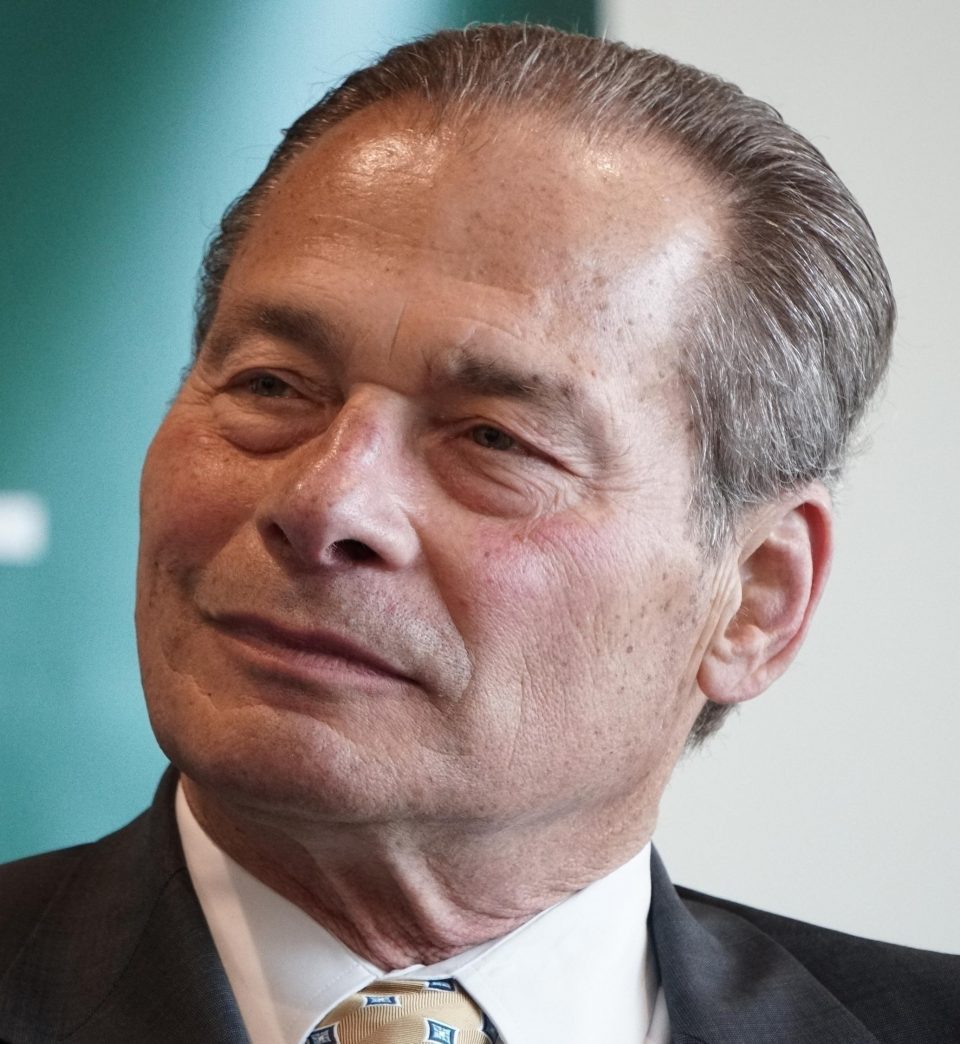Rhode Island Senate President Dominick Ruggerio wanted to hold drugmakers like Purdue Pharma accountable for their role in the opioid epidemic when he proposed the tax on prescription painkillers that lawmakers approved last summer.
But when the first tax bills went out this fall, Purdue was conspicuously absent from the rolls, as were other large pharmaceutical manufacturers, something Ruggerio and others now hope to address with changes to the legislation in this year’s upcoming General Assembly session.
“We are looking at the OxyContin situation,” Ruggerio said in a recent interview about his priorities for 2020. “We passed the legislation, but we are not getting to the manufacturers, just the distributors. We have to find a way to get to big pharma — and the distributors are part and parcel of that — but they were not the ones we are going after.”
House Speaker Nicholas Mattiello, who included the opioid tax in this year’s state budget, agrees changes are needed, although like Ruggerio he didn’t have details.
“It is something we are looking at and it is something I think we want to do,” Mattiello said about tweaking the tax. “We will be very collaborative with [the] Senate president. That was initially his initiative.”
Josh Block, spokesman for Gov. Gina Raimondo, said she is “open to considering any proposal that strengthens the State’s response to the opioid crisis, including potential changes to this law. We’re still working through the budget process and haven’t made final decisions at this point.”
The $5-million annual opioid tax is to be paid by drug companies based on their Rhode Island market share. Sales of drugs used in addiction treatment (methadone) or anesthesia are exempt, as well as any opioids manufactured in Rhode Island for export.
The new law required companies to annually report their wholesale Rhode Island opioid sales to the Department of Health, which then calculates their share of the $5-million tax bill. Proceeds from the tax are to go to addiction treatment. Ruggerio has initially proposed raising $7.5 million through the tax.
Forty-seven companies reported sales, according to a list from the Department of Health, although some appear to be affiliated entities of the same company. (For example, McKesson Corporation, McKesson Corp., McKesson Drug Company.)
The list includes Woonsocket-based CVS Pharmacy Inc.
The Department of Health list does not include any information about how much of the $17.2 million in reported 2018 Rhode Island opioid sales each company was responsible for.
It also does not categorize each company’s role in the drug market, so pinning down the precise number of manufacturers versus distributors is tricky.
However the Healthcare Distribution Alliance, a trade group representing pharmaceutical distributors, calculates that seven of the 47 on the list are manufacturers.
The Alliance opposed the opioid tax last year and warned that it could raise prices and lead to shortages of painkillers.
In a statement Friday Matt DiLoreto, HDA vice president of state government affairs, wrote that, while the organization can’t point to specifics, “we would not be surprised if the tax has already created supply chain challenges” in Rhode Island.
“HDA continues to engage with state legislators in the hope that a solution can be enacted in 2020 that would create a more equitable approach to addressing the opioid crisis in Rhode Island,” DiLoreto wrote. “Distributors are logistics experts that do not manufacture, dispense or prescribe medicines and should not be disproportionately penalized as they are under the current law.”
In New York, the other state with an opioid tax similar to Rhode Island’s, Fortune recently reported that some manufacturers are no longer doing business in the state because of the tax and pharmacies are struggling to get some drugs.
Distributor Cardinal Health, which is on the list of Rhode Island wholesalers, this year told manufacturers they must pay any taxes on opioids from New York and Rhode Island, prompting concerns the states could face shortages.
“RIDOH staff did reach out to gauge whether patients who are prescribed medications that come into Rhode Island through Cardinal Health were being affected. We did not hear a significant amount of concern, largely because Cardinal Health is one wholesaler,” Department of Health spokesman Joseph Wendelken wrote in an email. “And from our perspective, there aren’t any irregularities in the distribution of medications to Rhode Island pharmacies. We reached out widely again [Thursday] and have not yet heard any concerns regarding medications from any wholesalers.”
Wendelken said that three patients reported being unable to fill prescriptions “several weeks ago,” but their problems were resolved.
The first tax payment from Rhode Island opioid sellers is due Dec. 31.


